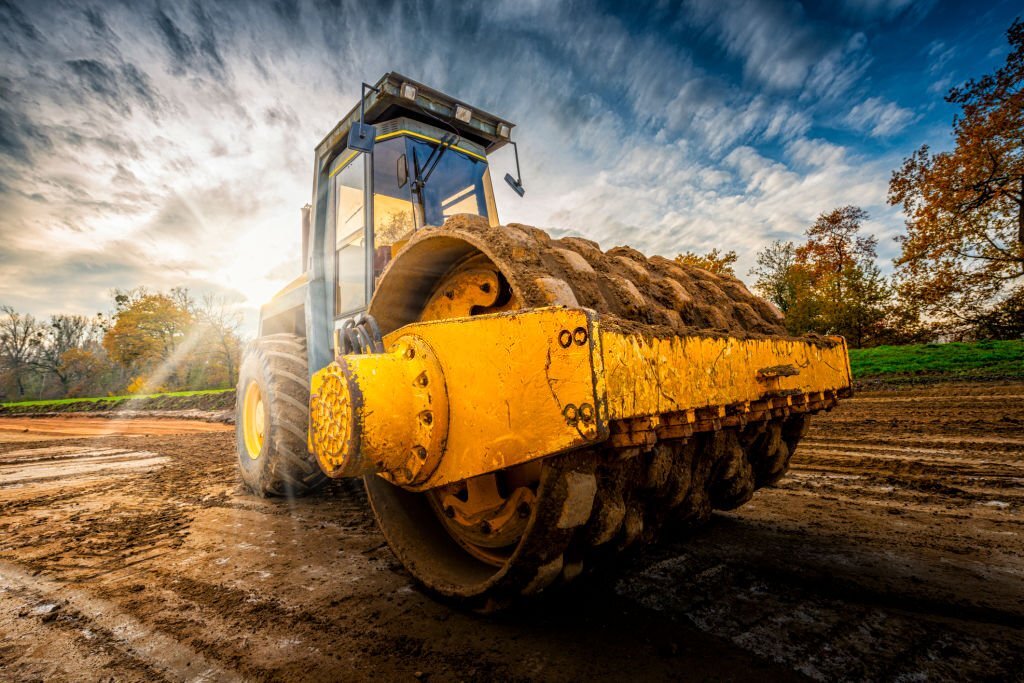
In heavy equipment operations, soil settlement can pose significant challenges to the stability and longevity of construction projects. To ensure a durable and reliable foundation, preventing future soil settlement is crucial. This is where compactors play a vital role. Compact, stable soil is essential for supporting buildings, roads, and other infrastructure. In this comprehensive article, we will explore how compactors aid in preventing future soil settlement in heavy equipment operations. We will delve into the compaction process, the effects of proper compaction on soil density, and how compactors minimize air voids and improve soil stability to ensure the longevity and durability of construction projects.
1. Understanding the Compaction Process
Compaction Definition: Compaction is the process of mechanically reducing the volume of soil, increasing its density, and minimizing air voids.
Effects of Compaction: Compaction results in a more stable and load-bearing soil that is less susceptible to settlement and subsidence.
Factors Affecting Compaction: Soil type, moisture content, compaction method, and compactor type all influence the effectiveness of the compaction process.
2. The Role of Compactors in Soil Density Improvement
Achieving Optimal Density: Compactors exert force on the soil to remove air voids and ensure soil particles are densely packed.
Impact on Load-Bearing Capacity: Proper compaction increases the soil’s load-bearing capacity, reducing the risk of future settlement.
Uniformity and Homogeneity: Compact soil is uniform and homogeneous, minimizing differential settlement.
3. Minimizing Air Voids in the Soil
Air Voids and Settlement: Air voids in the soil can lead to future settlement, compromising the stability of the construction.
Compaction Methods: Compactors employ various methods, such as vibration, impact, and kneading, to displace air and improve soil density.
Reaching Optimal Density: Compactors work to reduce air voids and increase soil density to reach the desired compaction level.
4. Improving Soil Stability
Soil Stabilization: Proper compaction stabilizes soil, reducing the potential for movement and settlement over time.
Resistance to External Forces: Compacted soil is more resistant to external forces, such as traffic loads and weather impacts.
Minimizing Erosion: Stable soil resists erosion, preserving the integrity of the construction project.
5. Ensuring Longevity and Durability of Construction Projects
Preventing Settling: Compaction minimizes the risk of future soil settlement, ensuring the stability and durability of the constructed structure.
Reducing Maintenance: Properly compacted soil requires less maintenance, resulting in cost savings over the project’s lifespan.
Supporting Heavy Structures: Compacted soil provides a solid foundation for supporting heavy structures, ensuring their longevity.
6. Different Types of Compactors for Soil Settlement Prevention
Vibratory Rollers: Vibratory rollers use vibration to achieve uniform compaction of granular materials, improving soil stability.
Pneumatic Rollers: Pneumatic rollers are effective in compacting cohesive and non-cohesive soils, reducing the risk of future settlement.
Plate Compactors: Plate compactors are ideal for smaller projects, such as landscaping and utility repairs, to prevent future soil settlement.
7. Quality Control and Testing
Density Testing: Density tests verify the level of compaction achieved in different layers of the soil.
Compaction Monitoring: Continuous monitoring during construction ensures quality adherence and optimal compaction results.
8. Compaction Specifications and Standards
Project Requirements: Following compaction specifications is essential to meet the project’s soil density requirements.
Industry Standards: Complying with industry standards ensures that the construction meets safety and quality guidelines.
Conclusion
Compactors play a crucial role in heavy equipment operations by aiding in preventing future soil settlement. Through the compaction process, these machines improve soil density, minimize air voids, and enhance soil stability, ensuring a durable and stable foundation for construction projects. By selecting the appropriate compactors and adhering to compaction specifications and industry standards, construction companies can effectively prevent soil settlement and ensure the longevity and durability of their projects. Proper compaction is a fundamental step in creating robust and reliable infrastructure that can withstand the test of time.

